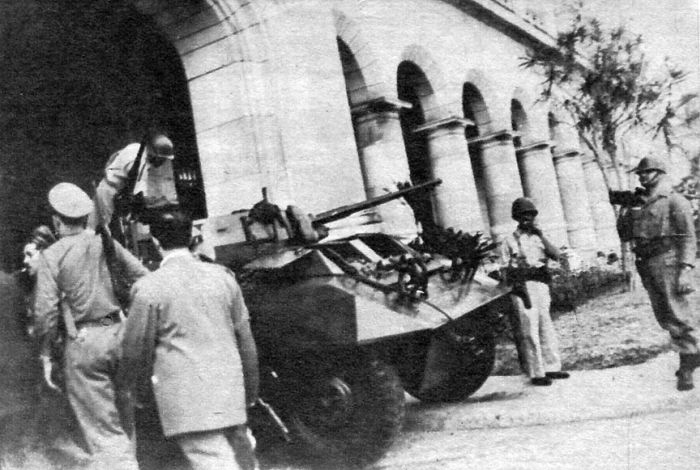
Havana, Mar 13.- On the 67th anniversary of the assault on the Presidential Palace, authorities and institutions of the country today remember that important action carried out by young Cubans, to execute the dictator Fulgencio Batista.
As a day that transcends history described Esteban Lazo, president of the Parliament, on March 13, 1957, when members of the Revolutionary Directorate carried out, in addition, the seizure of the radio station Radio Reloj, in order to summon the popular insurrection.
In his message, published in X by the legislative, Lazo highlighted the admirable courage with which the leader, José Antonio Echeverría, and his colleagues faced these actions, and remarked that they are an imperishable example.
For his part, the Prime Minister, Manuel Marrero, on the same social network paid tribute to the martyrs of these events, especially to Echeverría, who fell under machine-gun fire in unequal confrontation by Batista forces.
Every day like 13 March means a peak day, a bright day in the life of our country. We remember those dates to redouble the momentum, to redouble the struggle, wrote Roberto Morales Ojeda, Organizational Secretary of the Central Committee of the Cuban Communist Party.
The University of Havana also remembered his illustrious son José Antonio Echeverría, eternal president of the University Student Federation (FEU) and stressed in his publication that it is always necessary to turn to him when the country needs courageous men to point the way.
On March 13, 1957, shortly before 3:30 pm, two cars and a truck with the Fast Delivery label stopped in unison in front of one of the posts of the then Presidential Palace (now the Museum of the Revolution), and its young crew burst into the enclosure with clean fire.
They were part of the armed wing of the FEU, the Revolutionary Directorate, and were intended to execute the dictator Fulgencio Batista and hand over the garrison’s weapons to the people, which was to be called by Radio Reloj after its occupation by another group led by José Antonio Echeverría.
However, Batista managed to flee, and the assailants to Palacio did not receive the planned reinforcement, which facilitated the presidential regiment to dominate the situation and provoke the withdrawal of the assailants.
In Radio Reloj, Echeverría reported the execution of Batista and denounced the abuses committed by the regime, before the station left the air; minutes later, next to the walls of the University of Havana, he confronted the killers and was vilely murdered. (Text and photo: ACN)